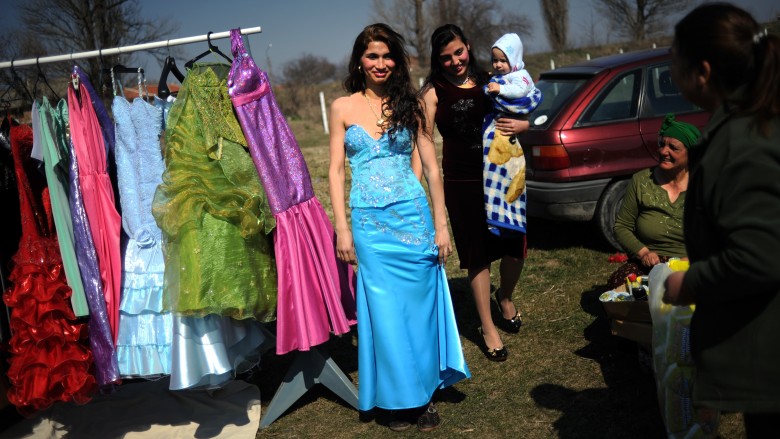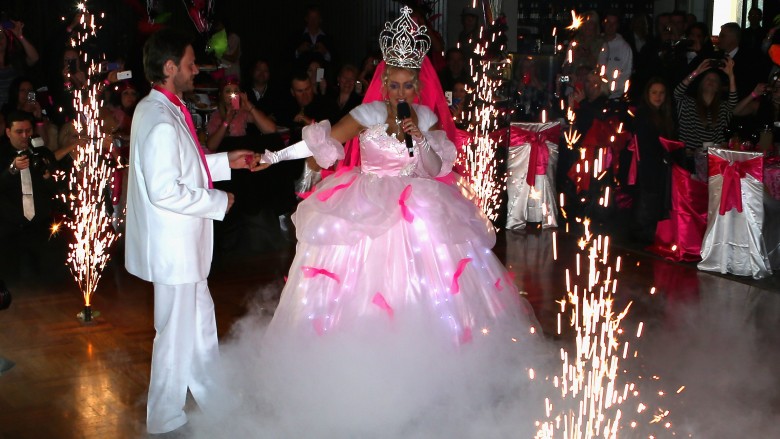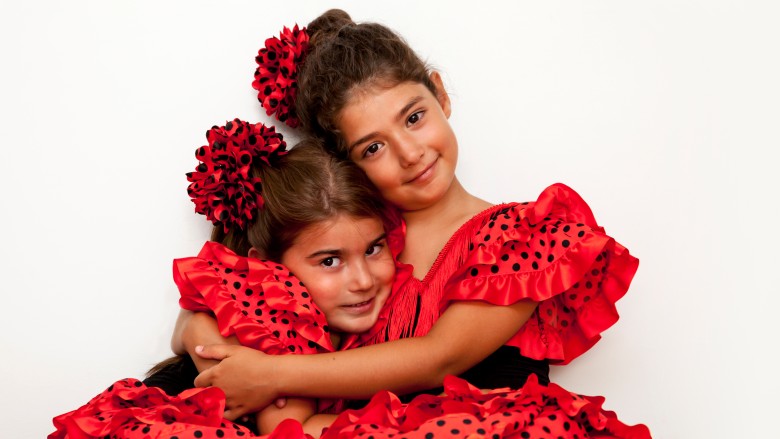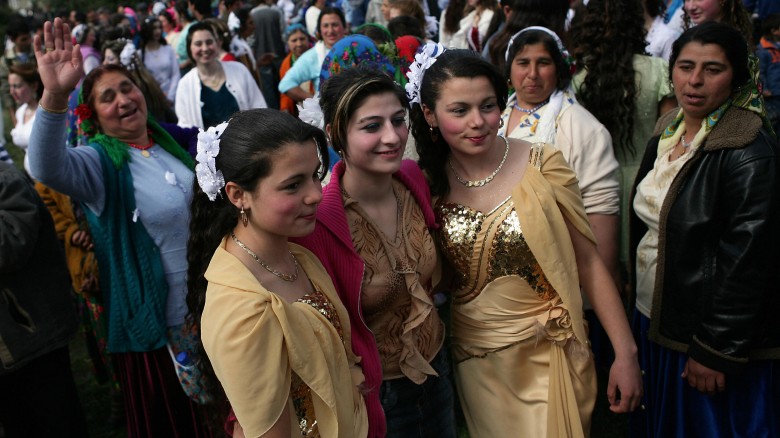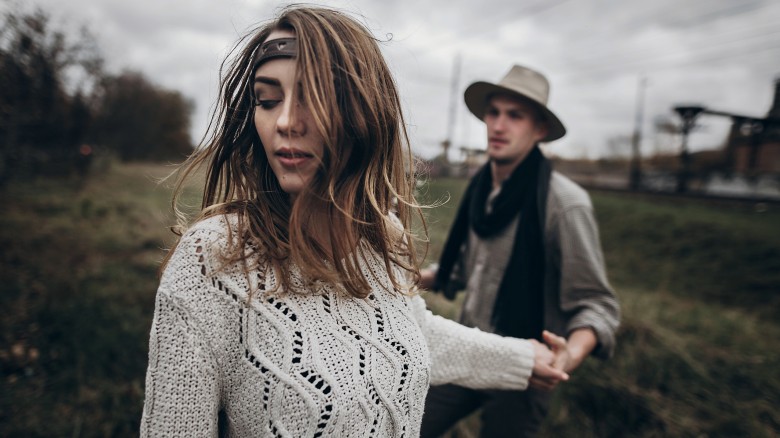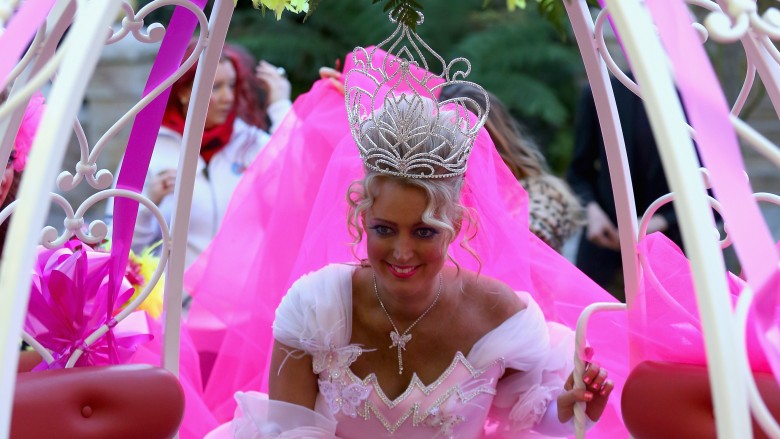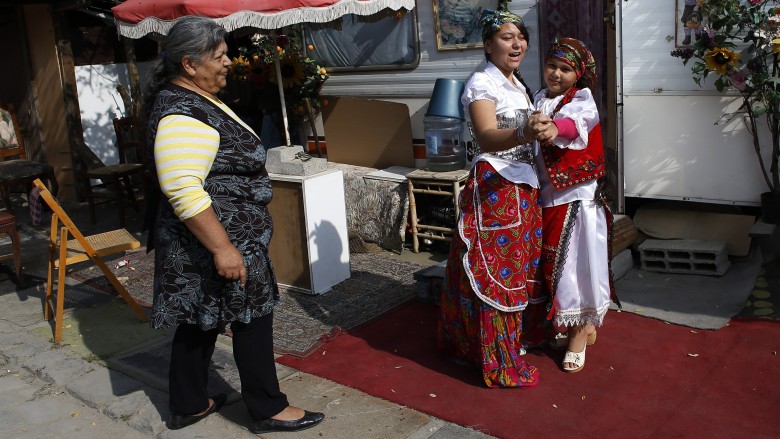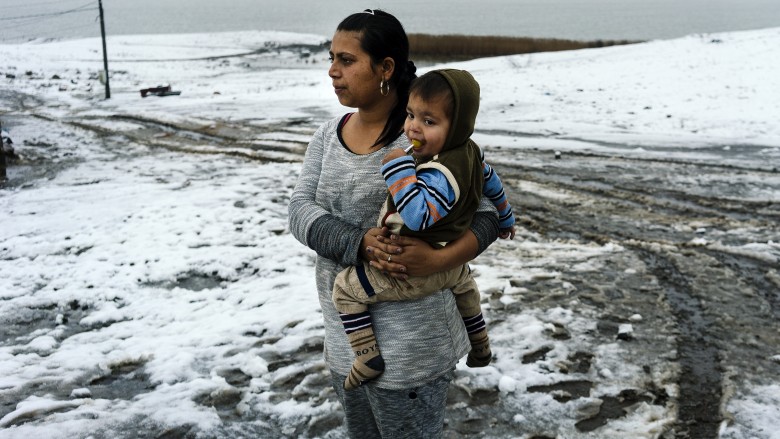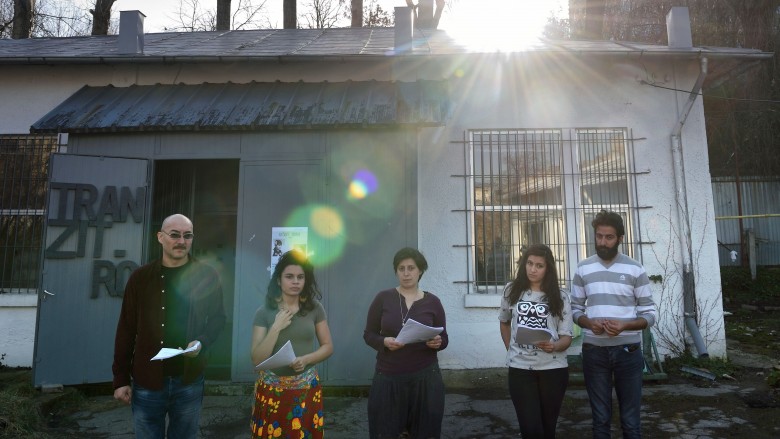The Untold Truth Of My Big Fat Gypsy Wedding
If there are two things that TLC reality show My Big Fat Gypsy Wedding is known for, it's drama and extravagant weddings. Attracting millions of viewers with the promise of offering a glimpse into the hidden world of gypsies, the show quickly gained popularity and even resulted in a spin-off, My Big Fat American Gypsy Wedding, which aired an impressive fifth season in summer 2016.
However, even diehard fans of both series will be surprised to learn just how many secrets the show has been keeping from them. As a male Roma using the pseudonym Pipopotamus declared in an open letter to My Big Fat Gypsy Wedding's producers, "your documentary is unfortunately a work of fiction." Here are the 10 truths show creators have been trying to hide.
It used to be a British TV show
First premiering in the United Kingdom and Ireland on February 18, 2010 under the title Big Fat Gypsy Weddings, the show enjoyed two seasons on Channel 4 and became the "eighth highest-rating programme ever" on the station, with 6.4 million curious viewers tuning into its first episode, and a whopping 7.5 million coming back the following week. On April 13, 2011, TLC revealed that it was working on adapting the show for a seven-part series and, in 2012, announced that it would use original footage from its British counterpart, but replace the original narrator with Ellen K, co-host of On Air with Ryan Seacrest.
The show omits major cultural details
One of the biggest criticisms the show has received to date is that it groups Travellers and Roma together, despite there being very prominent differences between the two cultures. "Travellers are ethnic Irish, while the Roma came from Eastern Europe (and originally, historians think, India)," explains Seyward Darby, online editor for The New Republic, in an article titled Big Fat Disgrace. He continued: "Viewers are instead offered an overly simplistic view of the cultures of Travellers and Roma with scarcely any historical or political context about their place in the United Kingdom and Europe." What's more, "there is no explanation of why tradition dictated for centuries that they live nomadic lifestyles."
European Roma Pip seconded this sentiment in an open letter to show producers, writing: "Just 10% of the Gypsy and Traveller population are actually Irish Travellers. The majority, like myself, are in fact Romany, yet your 'documentary' seems to ignore our existence. While Irish Travellers originate from Ireland, we can trace our routes back to India, so it was hardly surprising that I was somewhat confused when you use the word Gypsy in the title of your 'documentary' about Irish Travellers."
Not all wedding dresses are that extravagant
"I've been to many Gypsy and Traveller weddings, but I'm yet to attend a wedding where the bride's dress weighs more than my whole family," reveals Roma Pip. "It is a shame that you haven't featured any Gypsy or Traveller designers because the clothing that we were actually more traditionally known for before your 'documentary', is actually far more interesting than amusing." Speaking with The Guardian, Helen, a Traveller in her 20s, revealed: "I don't know anyone so rich that they can afford to splash out on wedding dresses like that. Mine was secondhand."
Kids aren't forced to leave school at a young age
After watching the show, many believe that girls are encouraged to leave school at a young age in order to get married and start families. Although Roma Pip concedes that the show "correctly identified that many Gypsy and Traveller children leave school at a young age," he quickly went on to point out that "this is not because we are all born to terrible parents, but because our communities suffer from great social exclusion.... Both teachers and students seem ignorant of our cultures, thus we are labelled as troublemakers and bullied for being different."
What's more, "you seem to have forgotten to feature those of us that do stay in education. Take myself, for example, I'm currently at college studying a range of subjects such as History and Sociology. My sister trained to be a hairdresser, my aunty went to university and is now a social worker and some of my cousins completed apprenticeships, thus clearly dropping out of education is not a prerequisite of living in a trailer."
Traveller Jill Smith agreed, telling News of the World that "the programme made out that all Gypsy girls are forced to leave school at nine so they can stay at home cleaning until they marry. Yes, we're expected to cook and clean, but we do have our own lives too. Most girls have the opportunity to go to school, many of them have jobs."
It doesn't actually offer access to a secret community
Although the show often claims to be giving audiences exclusive access to a secretive community, The New Republic points out that when "the narrator teases 'the secrecy behind a Traveller communion is revealed for the first time,' there isn't much that's secretive. It's more or less a young girl in a too-big, too-ornate dress, followed by a large family party. Or 'another important Gypsy [marriage] custom is the cake-cutting' — one which, last I checked, goes for most modern weddings as well."
The outrageous 'grabbing' ritual isn't real
On more than one occasion, the show has given airtime to a so-called 'grabbing' ritual, which gives young men permission to grab a woman who catches their eye and use force to receive a kiss. As it turns out, most in the community have never heard of this ritual. As Roma Pip wrote sarcastically in his open letter to Channel 4 "I would have been married by now, if only I had known that the key to a woman's heart was to sexually assault her using a Gypsy courting ritual called 'grabbing'. I asked my brother if he had grabbed his wife, but it turned out he had just asked her out on a date instead," he quipped. "It appears that in reality, no one actually knows what grabbing is."
In an interview with The Guardian, Mary, a 15-year-old Irish Traveller, revealed: "Grabbing has never happened to me or any of my friends and the first time I ever saw it was on the telly. I wouldn't put up with it, and I don't know why they made out we all do it. It's just one nasty boy they showed." Brigid, another Irish Traveller interviewed by the paper, seconded the sentiment, saying: "Grabbing has never happened to my kids. I have honestly never heard of it. It's all make-believe."
All that glitz and glam isn't really there
The families on the show appear to be very wealthy and boast plenty of disposable income to spend on lavish parties and over-the-top weddings. However, as The New Republic reports, reality is quite different. "Today, [Roma] tend to live in dire poverty, often in shantytowns outside major cities in Central and Eastern Europe."
As Julie Bindel reveals in her article for The Guardian titled The Big Fat Truth About Gypsy Life, the living conditions of Irish Travellers leave much to be desired. Bindel reported that many "trailers are not connected to water pipes, and the toilets, bathrooms and cooking facilities are in a small, unheated shed across the yard."
According to the Journal of Comparative Economic Studies, "unemployment rate is 100% in some rural areas and the Roma's dependence on government benefits is widespread [and] at least part of the problem arises from discrimination in employment." Why? Well, as The Economist found, "West Europeans tend to believe that Roma migrants are responsible for an epidemic of pickpocketing, shoplifting, mugging — and worse."
Many Roma find the show offensive
"The majority of Romani people have never been to Rathkeale, let alone own houses there," unleashes Pip, a male Roma, in an open letter to the show. "We suffer from discrimination on a daily basis and our human rights have historically been violated, yet you deem it acceptable to broadcast a misleading 'documentary' that has been made, not to raise awareness of our plight, but for entertainment. We are not a joke, we are human beings and your work of fiction is only strengthening stereotypes and ignorance."
Helen, a female Traveller in her twenties, felt the exact same way, telling The Guardian: "The way us women come across in the programme is a disgrace. It shows us as nothing but slaves to the men, only good for cooking and cleaning, and always being available to open our legs to them. We don't want that for our daughters."
For women, it's often far from happily ever after
The Guardian revealed that many Gypsy and Traveller women in the UK suffer from domestic violence. "A study in Wrexham, cited in a paper by the Equality and Human Rights Commission, found that 61% of married English Gypsy women and 81% of Irish Travellers had experienced domestic abuse." What's more, "the welfare needs of this community are vast. The women are three times more likely to miscarry or have a stillborn child compared to the rest of the population, mainly, it is thought, as a result of reluctance to undergo routine gynaecological care, and infections linked to poor sanitation and lack of clean water."
The show has had a negative effect on Traveller and Roma communities
Speaking candidly with The Guardian, Irish Traveller and mom of six Kathleen revealed: "Every week I go to the school and the parents are talking about that programme. They won't let our kids mix with theirs because they say we stink and don't talk properly. Settled kids won't even play sports with ours in case they touch them."
As New Republic reported back in May 2011, a quick Twitter search found that "viewers called the show 'crazy' and 'a trainwreck,' and referred to the women on it as 'whores' and 'hookers.'" Even more shocking, "one viewer took to Twitter Sunday night to write, tragically, 'I now understand why all of Europe hates gypsies.'"


